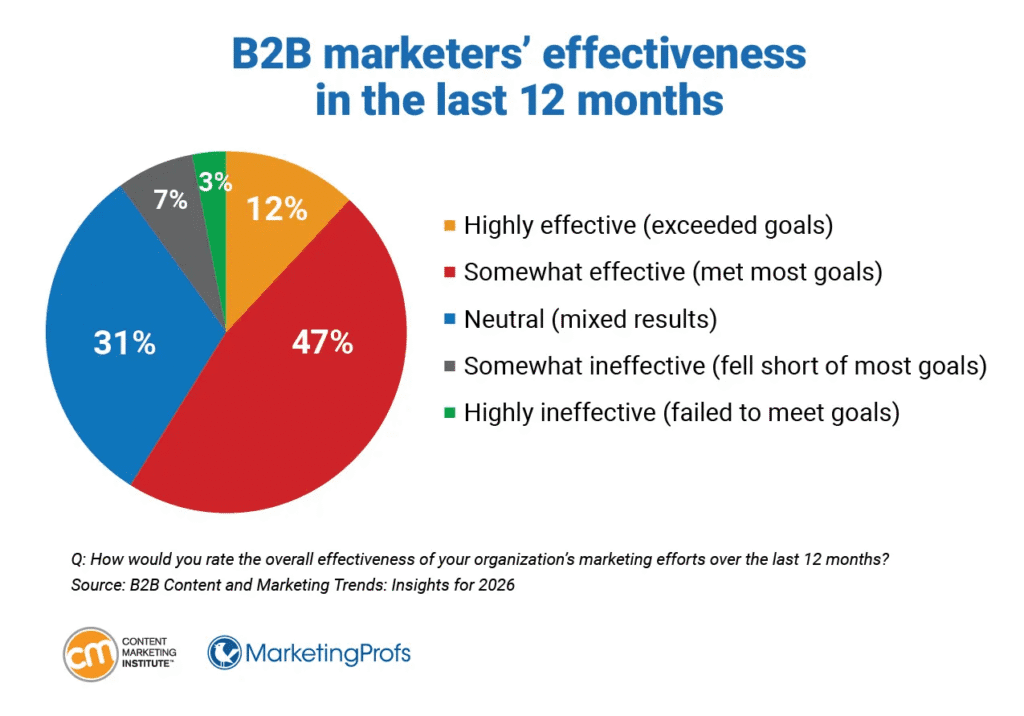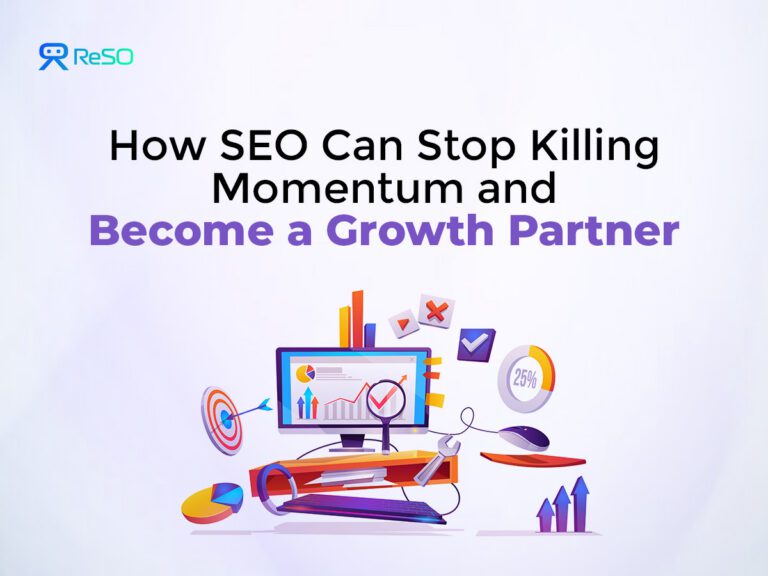Ever run into the SEO team known as the “Department of NO”? If you haven’t, lucky you. They’re the group inside many companies that unintentionally kill momentum, crush ideas, and slow things down. The kind of team that stands in the way rather than opening doors.
So what happens when SEO turns into the “Department of NO”? Marketing launches campaigns without consulting SEO. Product teams build features in silos, trying to tick off SEO checklists rather than collaborating on strategy.
And strategic decisions? They are often created behind closed doors, with SEO being pulled in at the last second to “fix things.” That’s a recipe for frustration, burnout, and missed opportunities.
But this doesn’t have to be the case. The most effective SEO teams operate with a completely different mindset.
Key Takeaways
1. Stop treating SEO as the “Department of No” that blocks progress and kills momentum.
2. Involve SEO teams early in projects to avoid costly rework, delays, and missed ranking opportunities.
3. Shift SEO’s mindset from nitpicking to enabling by aligning SEO goals with broader business objectives.
4. Use clear communication, scalable templates, and peer education to build trust across teams.
5. Measuring and celebrating SEO wins with shared KPIs drives stronger collaboration and faster growth.
The Problem With ‘No’
What ‘no’ actually does to a business:
- When SEO blocks initiatives or nitpicks without context, it breeds mistrust.
- Other departments start to see SEO as an obstacle: someone to sidestep or bypass.
- Communication breaks down, and instead of working toward common goals, teams end up guarding their own turf.
You might find developers rushing to launch a product feature without SEO’s input because looping in SEO means delays, or so they think. Worse still, when the SEO team steps in late, they demand costly rewrites or structural changes. Suddenly, the whole project scrambles just to meet SEO requirements.
This is not a collaboration. It’s chaos.
Being technically right about SEO means nothing if you’re not part of the bigger decision-making process. You can point out all the errors and missed optimizations. But if you’re always slapped with a “no” response and kept on the sidelines, your impact is minimal. The business loses growth potential. And worse, you lose influence.
The True Cost of Siloed SEO
What’s the price of this “Department of No” behavior in dollars and time? Let’s talk specifics.
- Wasted resources: When SEO is involved late, fixing issues means rework. Writing, development, and design time is spent on changes that could’ve been avoided if collaboration had happened earlier. Missed SEO input is a big driver.
- Slower launches: When teams work in silos, projects drag on as SEO pushes back. Delays can be costly at the B2B scale, where every day counts for competitive advantage.
- Missed ranking opportunities: Google rankings hinge on several technical factors: URL structure, metadata, content depth, and internal linking. Getting these right from the start means positioning your product or campaign in front of buyers exactly when they’re searching. Late SEO involvement makes it reactive, not strategic.
- Lower organic traffic and leads: The knock-on effect is fewer visitors and fewer qualified leads. B2B sales pipelines take a hit, slowing revenue growth.
- Frustrated teams: When SEO is seen as a blocker, it creates tension that impacts morale. Teams stop trusting each other, and communication breakdowns become common.
Shifting Gears: Embrace ‘Yes, And…’
The faster way to deal with these costly issues is flipping the conversation. Instead of “Can’t do that because SEO says no,” come from a place of “Yes, and here’s how we do it to win.”
Here’s how you make that happen:
- Start with empathy: Understand the bigger goals behind marketing campaigns or product launches. Ask questions: Why is this feature important? What problem does it solve for customers? What’s our timeline?
- Find shared priorities: Align SEO objectives with business goals. If the marketing team needs speed to market, work together to create a lean, SEO-friendly launch plan instead of nagging for perfect technical audits before release.
- Offer solutions, not barriers: Instead of just flagging what’s wrong, suggest actionable fixes or alternatives that meet SEO needs without blocking progress.
- Build relationships before enforcement: Get to know colleagues in product, marketing, and other areas. Trust reduces resistance to SEO input.
- Be the enabler: Show that SEO isn’t the department of last-minute “no” but the driver of scalable, sustainable organic growth.
Practical Steps to Break the “Department of No” Cycle
Transforming your SEO team’s mindset and culture starts with intentional, concrete actions. Here are a few to try:
1. Get invited early
Proactively request to join project kickoffs, content planning meetings, and product discussions. Early input lets you shape strategy when decisions actually get made.
2. Improve communication style
Trade technical jargon for business-friendly language. Focus on how SEO supports revenue, lead generation, or customer acquisition goals.
3. Create scalable templates and guidelines
Develop frameworks for content and landing pages that your marketing and product teams can use independently. Make SEO-friendly practices easy to adopt.
4. Educate peers
Host lunch-and-learns or short workshops to explain SEO’s role in business growth. Help demystify SEO so other teams value your input.
5. Measure and celebrate wins
Track performance improvements from early SEO involvement: higher organic traffic, better keyword rankings, faster launches. Share those successes widely.
6. Collaborate on KPIs
Work with marketing and sales teams to define shared metrics that matter across departments. This creates alignment and mutual accountability.
Why This Shift Matters in B2B
B2B marketing isn’t a one-off game. It’s complex and multi-layered. Sales cycles last months or more. Content and product initiatives work together to nurture relationships and build trust.
That’s why SEO collaboration is critical. The Content Marketing Institute’s 2025 research found that only 12% of teams feel their marketing is highly effective. Disconnected teams and misaligned SEO input are a large factor in those low success rates.

Real-World B2B SEO Impact Stats
If you need numbers to back up your push for greater SEO collaboration, here are three from reliable sources:
1. Businesses that blog get 55% more website visitors. This only works when SEO is involved from content planning, ensuring keywords and user intent align with marketing goals.
2. According to Emarketer, 16%-45% of marketers believe their ad budgets are wasted on irrelevant accounts.
The Legal Team Lesson: From Blockers to Enablers
Legal departments offer a valuable comparison. They used to be obstacles to growth, slowing down launches with endless reviews and restrictions. Over ten years, many legal teams transformed into business enablers by adopting a risk-balanced, solutions-first mindset.
SEO needs a similar evolution.
Imagine legal said “no” to every contract change to protect risk without thinking about the business impact. Instead, they learned when to say “yes, and,” creating efficient processes that get deals done while managing compliance. SEO can do this too, balancing best practices with business realities.
Become the Department of Growth
The Department of No is everywhere. But it’s not your destiny.
- By shifting from gatekeeper to growth partner, SEO can earn trust, drive influence, and speed up business impact. Early involvement, collaboration, and clear communication are the foundation.
- B2B companies that break down silos and integrate SEO see stronger organic traffic, better leads, and faster pipeline velocity.
- If Legal teams can change from blockers to enablers, SEO teams have no excuse. The future belongs to SEO teams that say “Yes, and…” not “No.”
And if you want to turn your content into the department of growth, book a call with us.








